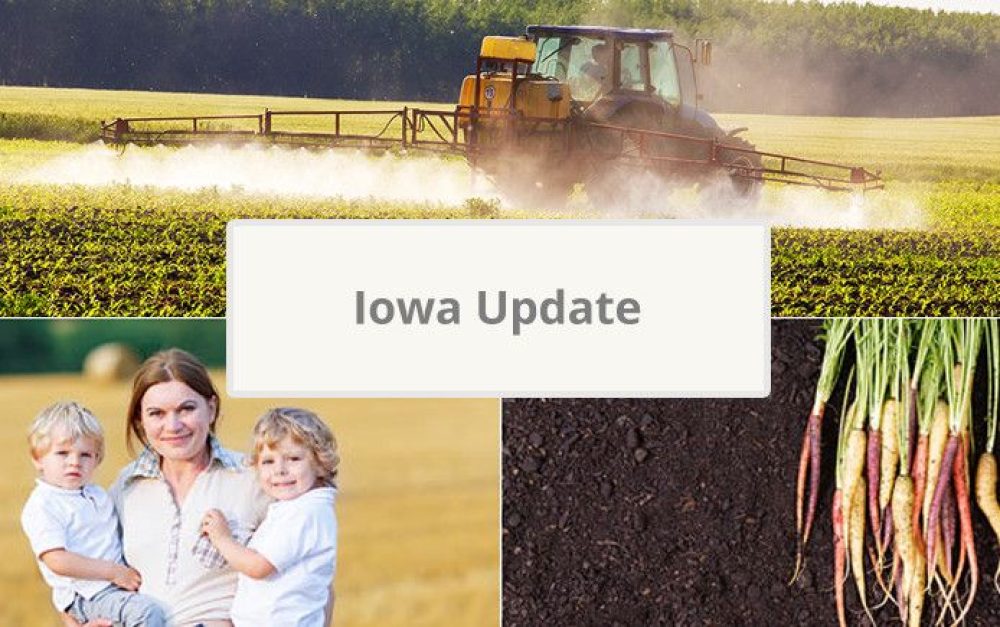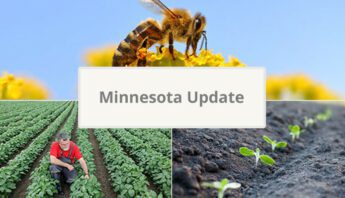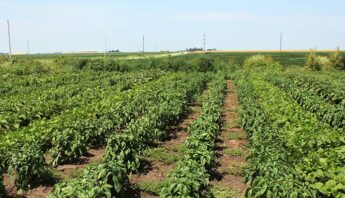Last Sunday night, I had the opportunity to view a brilliant display of the aurora borealis (Northern Lights) that was stronger than any I had witnessed previously. The lights pulsed and reached for the skies directly above me. It was quite an experience that has colored my thoughts for this month’s Iowa News.

I took a few pictures and was amazed how much richer the colors were in the photo than they seemed at first. I learned that the cells that make up most of our night vision only see black, white and shades of gray. Typically, when we see Northern Lights in Iowa, they are not bright enough for our eyes to use the cells that see color. Sunday’s show was actually bright enough that my eyes were picking up some of the color, which tells you something about their strength.
I often wonder how it is possible that people don’t always see how our current food and agriculture system is hurting us. I admit that I have been surprised when someone admits they don’t see a difference between industrial agriculture and a system based on agroecology. Perhaps the problem is that we aren’t shining a bright enough light on the differences between the two. Or maybe, we just need to turn up the intensity when we talk about how much better things could be?
Northern Lights are created when energized particles from the sun strike our planet’s magnetic field at forty-five million miles per hour. The evidence of Earth’s effort to protect life on the surface is more than a show that we can admire and share with each other on social media. The aurora borealis is a reminder that we also have a responsibility to protect each other and the planet on which we live.
We can begin by changing how we grow food. It seems to me that Iowa would be the perfect place to start. If you would like to learn more, read on!
Thank you for being willing to consider my thoughts and words. Be well,
Rob Faux
PAN’s Communications Manager
Owner/Operator, Genuine Faux Farm, Tripoli, IA

What is agroecology?
You might notice that we are using the word “agroecology” more frequently in our work at PAN. Agroecology is about much more than just agricultural practices, which could include organic and regenerative agriculture. If you would like to learn more, I offer this entry I authored that was recently published in our Ground Truth blog. I think it provides a good overview from my Iowa farmer perspective.
If you want a global picture on agroecology, I encourage you to view the ten elements of agroecology, as outlined by the Food and Agriculture Organization of the United Nations.
Why is racial justice in our food systems important?
An individual recently asked us why PAN makes the connection between racial justice and agriculture. We invite questions like this one because they give us all an opportunity to learn. I recommend these remarks by Dr. Ricardo Salvador, a scientist and food and farming expert with strong Iowa ties. Give yourself permission to take the time you need to read that article fully with an open mind.
Carbon pipeline
Last month, the Iowa House of Representatives passed a bill that would ban the use of eminent domain for carbon capture pipelines unless 90% of the route is first acquired through voluntary land sales. The bill was amended and would put fewer restrictions on carbon pipelines than the original proposal. This article by Iowa Public Radio provides more details.
The claim that a pipeline to move liquified carbon (created by ethanol and pesticide plants) will be an environmental “win” is flawed. Instead, it is an attempt to make our outsized reliance on corn and pesticides “less bad,” while also allowing a wealthy few to capture government funds in the process.
A better solution would be to not create the carbon by-products in the first place. The science behind carbon capture tells us that we can have a meaningfully positive effect on reducing greenhouse gas emissions by adopting policies that support the principles of agroecology.
Ongoing dicamba lawsuit
In 2020, the US 9th Circuit Court of Appeals found that the Environmental Protection Agency (EPA) broke the law by continuing with the provisional registration of dicamba herbicides. The original decision ordered EPA to invalidate the registration based on the demonstrated harm dicamba causes when it volatilizes (becomes a vapor) and drifts after application.
Contrary to the court order, EPA has maintained the registration of dicamba products while making minimal adjustments to the use restrictions. PAN, along with National Family Farm Coalition, Center for Food Safety, and Center for Biological Diversity have filed a continuation. We are asking that the court once again order the EPA to rescind approval of these products. If you would like to learn more, I recommend this article.








